Accelerating remote working concepts
The global lockdown that forced employees to work from home was a real test for business vulnerability and readiness for future shocks.
Vishnu Nair of Kestria New Zealand (Ichor Leadership Search) reflects that “we could potentially see IT firms undertake a rapid expansion of their resources as they are increasingly called upon by clients to support virtual working environments across multiple sectors”.
Tracy Dawson of Kestria South Africa (Jack Hammer) agrees with this and notes that there is a rising demand for roles in the IT Infrastructure, Security and Transformation areas. According to Tracy, preparing for a remote workforce has accelerated many businesses’ change imperatives. “Working-from-home requires robust information security and infrastructure availability and places additional demands on workplace behaviour, challenging traditional mindsets and ways of working”.
Innovation in production and manufacturing
Plummeting oil prices, supply chain bottlenecks caused by lockdowns and closing of borders, and the slowdown in spending pose a significant threat to the global manufacturing sector. Companies that have begun investments in automation technologies will re-evaluate and accelerate the pace of progress across selected plants worldwide. According to Mathias Friedrichs, Managing Partner at Kestria Germany (Friedrichs & Partner) clients in the packaging, cleaning and hygiene, and paper manufacturing sectors continue to hire for development roles that are critical to drive and accelerate plant automation and manufacturing innovation. Rita Kaufmann-Linke, Managing Partner at Kestria Austria (Kaufmann-Linke HR Solutions), shared with us that critical system sectors such as food, packaging and pharmaceuticals are continuing with the hiring of C-suite and key roles in Sales, Operations, Health and Safety and Supply Chain.
Monicca Yan, Managing Partner at Kestria China and Singapore (HR Partners), said that companies are regaining their confidence in China, the first country hit by the pandemic and also the first to overcome it. Our clients in the factory automation space have seen a sharp increase in demand in March 2020. Leaders have been put to the test, in times such as these – supply chain disruption due to lockdowns in certain countries (or cities) affected many industries, including critical medical equipment and agriculture production. This has caused companies to re-examine their whole supply chain and assess the durability of their back-up or contingency plans.
Business and financial strategy
As the dawn breaks after the crisis, companies that have grasped a good sense of the competitor, customer and regulatory landscape will continue to stay ahead of the competition. This is also an opportunity to take new positions as new demands emerge due to changing consumer behaviours and preferences and as weaker players leave the market. Raj Kumar Paramanathan from Kestria Malaysia & Thailand (CnetG Asia) said companies with healthy cash positions will restructure and accelerate investments into key pockets of businesses that will yield long-term profit and value.
The role of the CFO will continue to evolve and become more cross-functional as they play a proactive role in driving transformation and influence change in the company. Besides steering the company’s financials into a safe position, the CFO will need to build scenario planning that includes the different eventualities as a result of the pandemic, take into consideration evolving global or regional trade regulations, tariff cost strategy, impact on supply chain and other new denominators.
Anders Jorgensen, Managing Partner of Kestria Denmark (People Executive), is currently advising a client who is looking for a CFO and CSO to build scalability for the business. Anders shared with us that there is also continuous focus on beefing up operational effectiveness and business sustainability, and his team is working on roles that oversee the strengthening of the client’s business operations. Richard Boot, Chairman of Kestria UK, reported that they have seen a rise in risk and compliance roles in regulated industries.





